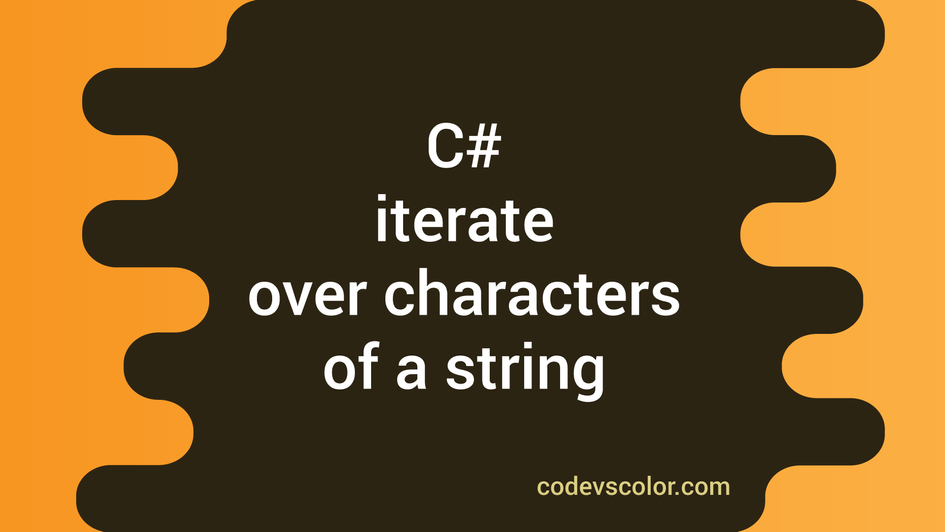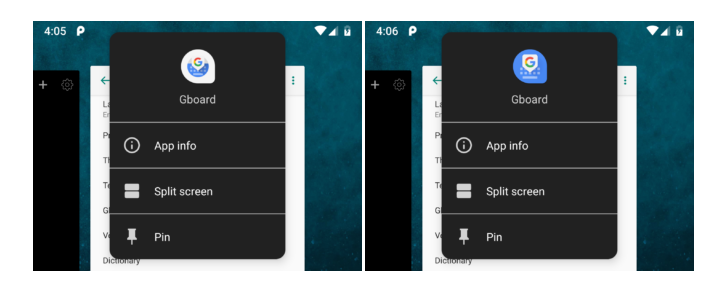

- ITERATE OVER STRING ANDROID CODEPOINTS SKIN
- ITERATE OVER STRING ANDROID CODEPOINTS CODE
- ITERATE OVER STRING ANDROID CODEPOINTS PLUS
This method returns an iterator of both these chars, as well as their byte positions. In the loop get each element by calling next ( ) method. Iterate the loop as long as hasNext () method returns true. Create a loop that makes a call to hasNext ( ) method. Obtain an Iterator by calling the collection’s iterator ( ) method. As a string slice consists of valid UTF-8, we can iterate through a string slice by char. To use an Iterator to traverse the collection follow these steps: 1.
ITERATE OVER STRING ANDROID CODEPOINTS SKIN
For example, 👷🏻♀️ Woman Construction Worker: Light Skin Tone is. Returns an iterator over the chars of a string slice, and their positions. this length is determined by the number of Unicode codepoints, not the actual visible characters.
ITERATE OVER STRING ANDROID CODEPOINTS CODE
Any char which maps to a surrogate code point is passed through uninterpreted. Emoji genders and skin tones are also implemented similarly, by having a base emoji (single codepoint) followed by a skin tone modifier and a gender modifier. Strings are reference-counted and use a copy-on-write. Some ways to iterate through the characters of a string in Java are. Using the methods mentioned above, you would get the following integer representations of codepoints. Everything can be done with properly-designed iterators/view/slices (there will of course need to be a backdoor to create those from raw indexes at the C level, but this should be moderately difficult for user code to access). 👨👩👦 ( Family: Man, Woman, Boy) is actually a sequence of emojis, separated by a special character - in this case, man-separator-woman-separator-boy. No, it is not useful to have a numerical index into a string.

This is probably out of the scope of your question (unless you want to transform emojis into image form or something), but nonetheless interesting. Sadly, graphemes appears to be in flux at the moment. Unicode standard specifies a unique value for each character in all kinds of human languages. Each of those is one or more code points, represented as a sub-slice of the string.

You want to use graphemes to get an iterator over the string's graphemes. Ints are 32-bits and thus safely wide enough for all Unicode codepoints.Īnother kettle of fish is when you get into topics like emojis or languages which combine multiple codepoints. Changing an element in the middle is also borderline insanity when you consider combining codepoints. (Having easy support for walking by runes (Unicode codepoints) is ok too.) Remove the ability to index into a string. Make walking by grapheme cluster the simplest way of iterating over a string. "hello world".codePointAt(3) which returns an int. Stop exposing UTF-16 words as the basic unit of a String. The correct way to safely iterate through all Unicode codepoints (I believe rune is the Go terminology?), is any of the "codepoint" methods e.g.

This is because Kotlin inherits 16-bit chars from Java, which has kept them around for backwards-compatibility. Using rangeOfComposedCharacterSequenceAtIndex:, you could write a routine that correctly loops over all characters in a string, but it would be quite. You can use the stream directly to iterate over them: string. Thankfully uses "codePointAt" which safely handles the surrogate pair-ness of UTF-16 (java's internal string representation).The short answer is no, it is not safe to use or anything else that returns a Char. Java 8 added CharSequencecodePoints which returns an IntStream containing the code points. You can use it with foreach like this: for(int codePoint : codePoints(myString))
ITERATE OVER STRING ANDROID CODEPOINTS PLUS
Thought I'd add a workaround method that works with foreach loops ( ref), plus you can convert it to java 8's new String#codePoints method easily when you move to java 8:


 0 kommentar(er)
0 kommentar(er)
